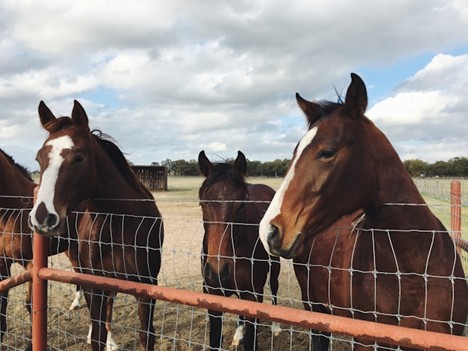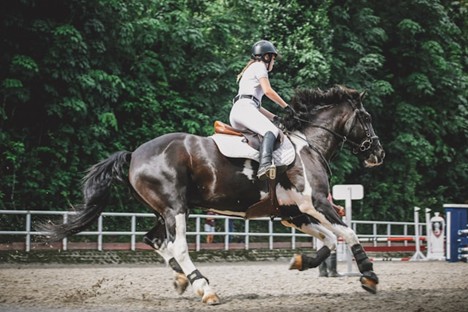
The equine industry is a unique intersection of passion, sport, and business. Whether someone owns a single horse for leisure or manages a competitive stable, legal agreements are essential in protecting both parties and ensuring clarity in expectations. Horses are valuable assets, and misunderstandings around their care, training, use, or transfer can lead to disputes that are costly in more ways than one. From leases to sales to boarding arrangements, each agreement provides a framework that safeguards relationships and investments. Consulting with an equine lawyer during this process can help horse owners and professionals avoid costly mistakes and create contracts that hold up under scrutiny.
Why Contracts Matter in the Equine Industry
The equine world is built on trust and relationships, but even with the best intentions, conflicts arise. Horses represent not only a financial investment but also an emotional one. When ownership rights, responsibilities, or financial terms are left vague, misunderstandings can quickly escalate into disputes. Written contracts establish clear expectations, reduce ambiguity, and serve as enforceable records of agreements.
Verbal agreements are common in the horse community, yet they often fail to capture important details such as liability, payment terms, or what happens if a horse becomes injured. A well-drafted contract does more than assign responsibility, it helps maintain healthy relationships by removing uncertainty.
Lease Agreements: Flexibility Without Ownership
Horse leasing has become increasingly popular, offering riders the opportunity to enjoy horses without the full financial burden of ownership. For owners, leasing provides a way to offset costs while keeping a horse in work. However, the success of a lease arrangement depends heavily on a clear, detailed contract.
A comprehensive lease agreement should outline the scope of the lease, including the duration, financial obligations, permitted uses of the horse, and care requirements. For example, can the lessee compete with the horse? Who is responsible for veterinary care or insurance? What happens if the horse is injured or becomes ill? These questions must be addressed in writing to prevent conflict.
Additionally, liability is a major concern. Horses are unpredictable, and accidents happen. A lease agreement should include indemnification clauses to protect the owner from liability arising from the lessee’s activities. Insurance coverage, whether through the owner, lessee, or both, should also be clearly defined.
Sales Contracts: Protecting Buyers and Sellers
The sale of a horse involves more than exchanging money for an animal. A horse’s value is influenced by its breeding, training, health, and performance record. Because of these factors, disputes in horse sales are common, often revolving around misrepresentation or nondisclosure of important details.
A strong sales contract protects both buyer and seller by documenting the terms of the transaction. At a minimum, the contract should include the purchase price, payment terms, warranties, representations about the horse’s health and soundness, and the transfer of ownership. Pre-purchase examinations by a veterinarian are common, and the findings should be incorporated into the agreement.
For sellers, including “as is” clauses can help limit liability if the buyer later discovers issues. For buyers, warranties about soundness or disclosure of prior injuries can provide peace of mind. Ultimately, the goal is transparency, each side should walk away knowing exactly what was promised and delivered.
Boarding Agreements: Defining Care and Responsibility
Boarding a horse is a significant commitment, both for the owner and the facility. Owners entrust their horses’ well-being to a boarding barn, while barn owners assume daily responsibilities for care and safety. A boarding agreement is the foundation of this relationship, ensuring both parties understand their obligations.
Key provisions in a boarding contract often include the type of board being provided (full board, partial board, self-care), fees and payment schedules, feeding and turnout routines, veterinary and farrier care, and rules of the facility. Liability waivers are also standard, protecting the barn owner from responsibility for injuries caused by the inherent risks of equine activities.
Additionally, the agreement should address what happens if the owner fails to pay board. Many states provide stablemen’s liens, which allow barns to retain or sell horses for unpaid fees. Including these provisions in the contract ensures compliance with state law and avoids misunderstandings.
Common Legal Issues Across Contracts
While leases, sales, and boarding agreements each serve different purposes, they share common legal concerns that must be addressed:
Liability and Risk: Horses can be dangerous, and contracts should clearly allocate risk through waivers and indemnification clauses.
Insurance: Whether covering injury, illness, or mortality, insurance can provide financial protection for both parties and should be explicitly included in agreements.
Dispute Resolution: Contracts can specify how disputes will be resolved, whether through mediation, arbitration, or litigation. This helps avoid costly and prolonged legal battles.
Termination and Default: Every contract should outline what happens if one party fails to meet obligations or wishes to end the agreement early.
These elements ensure that contracts are not just functional, but resilient in the face of challenges.

The Emotional Component of Equine Contracts
Unlike many other industries, the equine world carries a strong emotional component. Horses are companions, athletes, and sometimes even family members. This emotional connection can make disputes especially painful. Contracts help mitigate the impact by keeping discussions focused on clear, objective terms rather than subjective feelings.
For example, a boarding barn may face backlash if a horse receives unexpected veterinary treatment. A contract that specifies when and how medical decisions can be made on behalf of the owner helps prevent misunderstandings. Similarly, in a lease, clarifying the limits of a lessee’s control over training or showing ensures that everyone’s expectations are aligned from the start.
Adapting Contracts to Individual Situations
No two horse arrangements are identical, which is why equine contracts must be tailored to the specific situation. A template found online may provide a starting point, but it rarely captures the nuances of a particular deal. For instance, the terms of a competition horse lease will differ significantly from those of a child’s first pony. Likewise, a small private boarding facility may operate under very different rules compared to a large commercial stable.
Customization is key. The more detailed and specific a contract is, the better it will serve both parties. Adding provisions that reflect the unique aspects of the arrangement ensures that the agreement functions as intended.
Building Trust Through Contracts
Contracts are not meant to undermine trust; rather, they are tools that support it. By documenting responsibilities and expectations, contracts help preserve relationships in the equine community. Riders, owners, trainers, and barn managers can all focus on what they love; working with horses and knowing that the business side is securely handled.
As the equine industry continues to grow and professionalize, the importance of contracts will only increase. With rising horse values, greater participation in equestrian sports, and expanding equine businesses, the potential for disputes grows as well. Legal agreements provide the stability and clarity needed to support that growth.
Lease agreements provide flexibility without ownership, sales contracts protect buyers and sellers from misrepresentation, and boarding agreements define care responsibilities. Across all of these, key provisions such as liability allocation, insurance, and dispute resolution ensure that both parties are protected.
By embracing well-drafted contracts, horse owners and professionals safeguard their investments and preserve the trust that underpins the equine community. At the heart of these agreements is not just legal protection, but the freedom to pursue a shared passion for horses with peace of mind.



